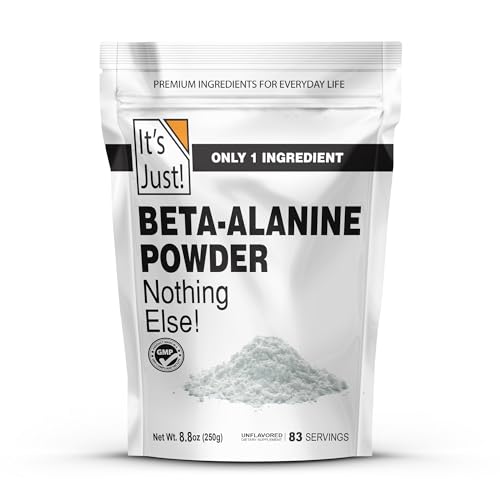
Understanding Weight Loss and Muscle Building
Weight loss and muscle building are two fundamental yet distinctly different processes that require a solid understanding of the body’s metabolic functions. To effectively manage body composition, it is essential to grasp how the body utilizes calories, the energy currency of our physiology. When the body requires energy for its daily functions—including movement, digestion, and maintenance—it draws from the caloric intake derived from food.
For weight loss to occur, a caloric deficit must be established; this means that the number of calories consumed must be less than the number of calories expended. The body then compensates for this deficit by utilizing stored energy, primarily fat, leading to weight reduction. Consequently, individuals seeking to lose weight typically alter their dietary intake while increasing physical activity to optimize energy expenditure.
On the opposite end of the spectrum lies muscle building, a process known as muscle hypertrophy. This requires a caloric surplus, where caloric intake exceeds expenditure, providing the body with the necessary energy to build new muscle tissue. A critical component of this process is adequate protein intake, as proteins serve as the building blocks for muscle repair and growth. Consuming sufficient nutrients, particularly during recovery periods, is vital for maximizing muscle gains.
Both weight loss and muscle building are profoundly influenced by nutrition and exercise. A balanced diet, rich in whole foods, alongside a structured exercise regimen, lays the groundwork for successful outcomes in achieving fitness goals. Understanding these principles will help clarify the role supplements can play in supporting the body during these transformations, ensuring that individuals can reach their desired weight and muscle composition effectively.
Top Supplements for Weight Loss
Weight loss supplements can serve as useful tools in the pursuit of a healthier body composition. One of the most researched ingredients is green tea extract, which contains catechins and caffeine. These compounds are noted for their ability to enhance metabolism and promote fat oxidation. Studies have shown that green tea extract can lead to a modest reduction in weight and body fat, particularly when combined with a balanced diet and regular exercise.
Caffeine is another popular ingredient often found in weight loss supplements. Known for its stimulating properties, caffeine can increase energy expenditure and fat burning. Research indicates that caffeine intake is associated with improved performance during exercise and may also help in appetite suppression, aiding individuals in their weight loss journeys. However, excessive consumption can lead to side effects such as insomnia and increased heart rate, making it important for users to monitor their intake.
Garcinia cambogia has gained attention due to its active ingredient, hydroxycitric acid (HCA), which is believed to inhibit an enzyme involved in fat storage and possibly increase serotonin levels, potentially helping to reduce cravings. Although some studies support its efficacy in promoting weight loss, results have been mixed, and it is advisable to approach its use with caution due to potential gastrointestinal side effects.
Additionally, glucomannan, a natural dietary fiber derived from the konjac root, acts as a soluble fiber that expands in the stomach, promoting a feeling of fullness. Research suggests that glucomannan supplementation can lead to weight loss when combined with a calorie-restricted diet. When incorporating these supplements into a regimen, users should start with lower doses and gradually adjust based on tolerance and effectiveness.
Ultimately, while these supplements can provide valuable support, they should not replace a comprehensive approach that includes a healthy diet and consistent exercise.
Essential Supplements for Muscle Building
Muscle building is a primary goal for individuals engaging in strength training and bodybuilding. To support this objective, various supplements are available that can enhance muscle recovery, performance, and overall growth. Notably, whey protein, creatine, branched-chain amino acids (BCAAs), and beta-alanine stand out among the most popular and effective options.
Whey protein is a complete protein derived from milk, recognized for its high biological value. It provides essential amino acids that are crucial for muscle recovery and growth post-exercise. Typically consumed in the form of shakes, the ideal time for whey protein intake is within 30 minutes to two hours after a workout, as this is when muscles are primed for nutrient absorption. Recommended dosages often range from 20 to 30 grams per serving, depending on individual protein needs and dietary restrictions.
Creatine, another favored supplement, is instrumental in energy production during high-intensity workouts. It assists in replenishing adenosine triphosphate (ATP), the primary energy currency in cells, thus enhancing performance and increasing the capacity for muscle growth. A common loading phase involves taking 20 grams of creatine per day for five to seven days, followed by a maintenance dose of 3 to 5 grams daily for sustained benefits.
BCAAs, comprised of leucine, isoleucine, and valine, help to reduce muscle soreness and expedite recovery by decreasing exercise-induced muscle damage. These amino acids can be taken before, during, or after workouts, with a typical dosage of 5 to 10 grams, tailored to individual weight and training intensity.
Lastly, beta-alanine enhances muscle endurance and performance by combating fatigue during strenuous workouts. This supplement works by increasing carnosine levels in the muscle, enabling athletes to push through higher volumes of work. A practical approach involves a dosage of 2 to 5 grams daily for optimal efficacy.
Individual dietary needs and responses to supplements may vary; thus, it is essential to consult healthcare professionals or dietitians when integrating these supplements into one’s regimen. Proper timing and dosing play crucial roles in maximizing the effectiveness of these supplements, ensuring they align with personal fitness goals.
Combining Supplements with a Healthy Lifestyle
While supplements can play a supportive role in achieving weight loss and muscle building goals, it is crucial to understand that they should not be the sole focus of one’s fitness journey. A balanced diet, consistent exercise, and healthy lifestyle habits are essential components that work synergistically with supplements to help individuals realize their fitness aspirations. Consequently, integrating these elements into a personalized fitness plan is imperative.
A well-rounded diet rich in whole foods—such as lean proteins, whole grains, healthy fats, fruits, and vegetables—provides the foundational nutrients necessary for optimal body function, recovery, and muscle growth. Individuals should pay attention to their caloric intake and macronutrient breakdown to ensure that their dietary choices align with their unique fitness goals, whether it is weight loss or gaining muscle mass. Consulting with a nutritionist or dietitian can be beneficial in establishing a tailored eating plan that suits individual needs.
In conjunction with dietary considerations, engaging in regular physical activity is vital. Variations in workout strategies, such as resistance training, high-intensity interval training (HIIT), and cardio exercises, offer multiple avenues for fat loss and muscle gain. It is advisable to create a balanced workout schedule that incorporates different forms of exercise while allowing adequate rest and recovery. This helps in preventing injuries and promoting consistent progress in one’s fitness journey.
Lastly, it is essential to acknowledge the value of lifestyle habits, including proper hydration, sufficient sleep, and stress management, all of which contribute significantly to overall health and fitness. Before starting any supplement regimen, it is wise to consult with healthcare providers. These professionals can offer insights tailored to individual health needs, ensuring the safety and effectiveness of supplement use in conjunction with a healthy lifestyle.













